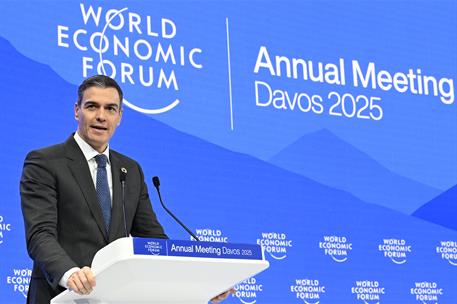
What are digital rights?
Digital rights are the extension of citizens' rights to the digital environment. They ensure that fundamental principles such as privacy, freedom of expression, internet access, equality and non-discrimination are protected in the digital age as effectively as in the physical world. It aims to adapt existing rights to technological challenges, ensuring compliance and strengthening democracy in the digital transformation.
Types of digital rights
Each country draws up its own Digital Bill of Rights, adapting it to its specific legal framework and needs. However, there are common principles that often guide their development, such as protecting the rights of minors and vulnerable groups, ensuring equal access for people with low digital skills, bridging digital divides and safeguarding privacy and security online, and protecting freedom of expression and the right to information. Among the rights that are protected in the digital environment are:
- Protecting children and young people in the digital environment
- Identity in the digital environment
- Digital inheritance
- Privacy and data protection
- Intellectual property
- Access to data of public interest
- Equality and non-discrimination
- Eliminating access gaps in the digital environment
- Freely receiving truthful information
- Protecting health in the digital environment
- Digital rights in the work and business environment
- Protecting health in the digital environment
- Protecting digital rights in the context of Artificial Intelligence, metaverse and neurotechnologies
What is the Digital Rights Observatory?
It is an initiative led by the Government of Spain as part of the Digital Rights programme. Its purpose is to promote the monitoring, debate and dissemination of Digital Rights among citizens and different public and private organisations.
The programme is funded by the Recovery, Transformation and Resilience Plan through the NextGenerationEU Funds. The Digital Rights Observatory was created within this framework. The observatory is an open, inclusive and participatory space, created to inform citizens about the progress, advantages and challenges in the field of Digital Rights and to promote good practices.
Why and for what purpose has the Digital Rights Observatory been created?
It has been created to ensure that citizens' rights are protected in the digital environment by promoting the implementation of the Digital Bill of Rights. The Digital Rights Observatory aims to contribute to the fight against inequality and discrimination online, and to encourage the adaptation of the legal framework to current technological challenges.
Who are the members of the Digital Rights Observatory?
Involved in the Digital Rights Programme are experts in digital rights, representatives of public institutions, civil society organisations and professionals from the technology and legal sectors. More than 150 entities (49 signatories of various agreements within the framework of the programme) and more than 360 experts take part in its development.
The Digital Rights Observatory, one of the flagships of this programme, is made up of around twenty of these entities: the Hermes Institute for Citizen Empowerment Foundation, "la Caixa" Foundation, Telefónica Foundation, Atresmedia Foundation, San Pablo CEU University, Autonomous University of Madrid, Carlos III University of Madrid, the Spanish Committee of Representatives of People with Disabilities (CERMI), Foundation for Sustainable Repopulation, Catholic University of Uruguay, European Association for the Digital Transition, Hiberus Foundation, University of Valencia Estudi General, Observatory of Social and Ethical Impact of Artificial Intelligence (OdiseIA), University of Santiago de Compostela, University of Navarra, Diario de Navarra Foundation, University of Comillas, Mobile World Capital Barcelona Foundation, and Red.es.
How are Digital Rights actions funded?
The actions carried out under the Digital Rights programme have a budget of €10.83 million, financed by the Recovery, Transformation and Resilience Plan through the NextGenerationEU Funds.
Red.es, a public entity attached to the Ministry for Digital Transformation and Public Administration through the Secretary of State for Digitalisation and Artificial Intelligence, contributes up to 80% of the total amount, and the remaining 20% is contributed in kind by the participating entities.
What is the Digital Bill of Rights?
It is a document published by the Government of Spain in 2021, which establishes a reference framework to ensure that the rights and freedoms recognised in the Constitution and the Universal Declaration of Human Rights are also protected in the digital environment. The Charter seeks to adapt these rights to the digital world, to strengthen them and to build trust in society in the face of technological change, without creating new fundamental rights but adapting existing rights to new challenges.
Do I have the same rights in the digital world as in the physical world?
Yes, the rights and freedoms enshrined in the Constitution and international treaties are fully applicable on the Internet. The rights extend to the digital realm, ensuring that citizens have the same protections online as in the physical world.
Are there special rights in the digital world that do not exist in the non-digital world?
Rather than new rights, there are adaptations and extensions of existing rights to the digital environment. For example, the right to digital disconnection, protection against algorithmic discrimination, the right to oblivion, and the right to digital inheritance are evolutions of traditional rights adapted to the particularities of the digital world.
How can Charters and Declarations of Digital Rights and Digital Principles be put into practice?
Through the implementation of specific legislation, public policies and the promotion of responsible practices by companies and organisations. Digital education and awareness-raising are key at this stage, as is collaboration between governments, the private sector and civil society to ensure that these rights are respected and promoted in the digital environment.
What is the Government doing to protect my rights in the digital world?
The Government of Spain is a pioneer in the defence of digital rights. In summer 2021, it published the Digital Rights Charter and is adapting its legislation to strengthen the protection of digital rights, as well as promoting the creation of the Digital Rights Observatory to promote their implementation and dissemination.
Steps have also been taken in Europe, including the approval of the Artificial Intelligence Regulation, under the Spanish Presidency of the Council of the EU. The EU has also implemented regulations such as the General Data Protection Regulation (GDPR), the Digital Services Act and the Digital Markets Act, and published the European Declaration on Digital Rights and Principles. These initiatives seek to protect the privacy, security and rights of citizens in the digital environment.
Non official translation





